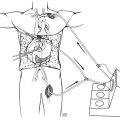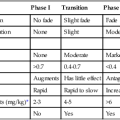Table of Contents:
- Introduction
- Why Wound Care Certification Matters?
- What are Wound Care Certification Requirements?
- What will you Learn in Wound Care Certification?
- How to Choose the Right Platform for Wound Care Certification?
- Empower your Career with Certification
Do you know that, according to GlobeNewsWire, over 6 million Americans currently live with chronic wounds? In fact, the condition has healthcare costs exceeding $28 billion annually. As a result, the need for advanced wound care professionals has grown in recent years, offering unprecedented possibilities for healthcare providers looking to become certified.
An accredited wound care certification can transform your career while addressing such rising critical healthcare need. The question isn’t whether you should pursue this specialization; it’s where you can find the most comprehensive, accredited programs. Well, let’s find out below!
Why Wound Care Certification Matters
Chronic wounds affect millions of people worldwide, but wound care is more than just dressing a wound. You need advanced skills, sophisticated knowledge, and have to follow evidence-based best practices. Here’s how wound care certification aids your professional growth and the well-being of your patients. Let’s take a look at the wound care certification benefits you in the long term.
Elevate Your Career and Patient Outcomes
When you get wound care certified, you’re transforming your practice. Certified practitioners always perform better than their uncertified counterparts: a NIH study revealed that nurses who underwent wound care training scored approximately 90% in pressure ulcer exams, while those who were not certified scored 75%.
Increase Your Professional Opportunities
Certification isn’t just about clinical skills. Many institutions offer incentives for certification, and certified nurses report higher job satisfaction and confidence. Certified nurses believe that credentials improve personal satisfaction and boost clinical confidence, as stated by the American Board of Nursing Specialties.
Increase Your Earning Potential
Certification can also be lucrative. Certified nurses earn a higher amount of money per annum than non-certified nurses. Since the market for chronic wound care is growing at a 3.8% CAGR rate globally, as provided by GlobeNewsWire, there’s only going to be increased demand for your services.
What are Wound Care Certification Requirements?
Before you embark on your certification journey, you must understand the foundational requirements that accrediting bodies demand. Knowing the prerequisites will help you prepare effectively and increase your chances of passing the certification exams and excelling in your practice. It includes
- An Active Professional License such as RN, LPN, PT, or physician credentials, and at least two years of direct patient care experience. This hands-on experience is crucial because wound care demands practical skills and clinical judgment developed over time.
- A CPR/ BLS Certification ensures you can respond to emergencies during patient care. Maintaining a clean professional record is important to demonstrate your commitment to ethical practice.
- An educational background with diverse clinical experience will make it easier for you to grasp the complex concepts involved in wound healing and management.
What You Will Learn in Wound Care Certification
The modern wound care specialist must master multiple competency areas that extend far beyond basic wound assessment. Current industry standards, as outlined by the Wound, Ostomy and Continence Nurses Society, emphasize the integration of technology-assisted healing methods. Essential competency areas you’ll master:
- Advanced Assessment: Comprehensive wound evaluation using standardized measurement tools
- Pathophysiology Knowledge: Understanding cellular healing processes and complicating factors
- Evidence-Based Protocols: Implementing current best practices for various wound types
- Technology Integration: Utilizing negative pressure therapy, bioengineered tissues, and digital monitoring
- Patient Education: Teaching proper wound care techniques and prevention strategies
- Documentation Standards: Meeting regulatory requirements for wound care documentation
Where to Take the Wound Certification Courses?
Choosing the right institution for your wound care certification is a critical decision. The quality of education, clinical exposure, and recognition of the credential can shape your career trajectory. Let’s explore some of the top options available to you.
University-Based Programs
Several prestigious universities have established comprehensive wound care certification programs that combine theoretical knowledge with hands-on clinical experience. Their graduation data shows impressive success rates and strong job placement outcomes. Top university programs to consider:
- University of Minnesota: 16-week intensive curriculum with a better certification success rate within six months
- Emory University School of Medicine: Comprehensive fellowship program with major healthcare system partnerships
- Johns Hopkins University: Advanced wound care certificate combining research and clinical practice
- University of Pittsburgh: Interdisciplinary program focusing on chronic wound management
- George Washington University: Online-hybrid format with extensive clinical rotation options
Professional Organization Certifications
If you seek a certification recognized across multiple healthcare settings, professional organizations offer excellent options tailored to your role and experience level. Leading professional certifications include:
- Certified Wound Care Nurse (CWCN) – WOCNCB
- Gold standard for nursing professionals
- Requires 60 hours of wound care continuing education within three years
- Over 8,200 current credential holders with a 97% job placement rate
- Certified Wound Care Associate (CWCA) – ABWM
- Designed for interdisciplinary healthcare professionals
- Accommodates various healthcare backgrounds
- 28% growth in applications over the past year
- Certified Wound Specialist (CWS) – American Academy of Wound Management
- Comprehensive certification for advanced practitioners
- Requires clinical experience, documentation, and examination
- Recognized across multiple healthcare settings
Online Learning Platform
Online wound care certification programs have revolutionized accessibility for working healthcare professionals. Recent analysis by the American Association of Colleges of Nursing reveals that online programs demonstrate equivalent learning outcomes to traditional classroom settings. Key advantages of online learning:
- Flexible Scheduling: Complete coursework around your current work commitments
- Cost Effectiveness: Typically less expensive than in-person programs
- Advanced Technology: Access to virtual wound simulators and AR assessment tools
- Self-Paced Learning: Progress through materials at your optimal learning speed
- Geographic Accessibility: Access top programs regardless of your location
- Interactive Features: Real-time collaboration tools and case study platforms
Leading online programs incorporate augmented reality components that allow you to practice wound assessment techniques using sophisticated digital models, often surpassing technology available in traditional classroom settings.
In-Person Training
Despite digital advances, hands-on clinical experience remains irreplaceable in wound care education. The Association for the Advancement of Wound Care emphasizes that clinical rotation components increase certification exam pass rates compared to purely theoretical preparation. Benefits of in-person training:
- Direct Patient Interaction
- Access to diverse wound types and healing stages
- Real-time observation of healing progression
- Development of tactile assessment skills
- Hands-On Learning Opportunities
- Practice with actual wound care equipment and materials
- Immediate feedback from experienced instructors
- Collaborative learning with diverse healthcare professionals
- Professional Networking
- Direct collaboration with experienced wound care specialists
- Building lasting mentorship connections
- Career advancement opportunities through professional relationships
How to Choose the Right Platform for Wound Care Certification?
Choosing the right wound care certification program requires careful consideration of your career goals, time availability, and financial resources. Let’s break down these factors so you can make an informed choice.
Career Alignment
Think about where you want to apply your wound care skills. If you work in acute care settings, look for programs emphasizing surgical wounds and hospital protocols. If you’re in long-term care, focus on programs that teach pressure injury prevention and chronic wound management.
Time Management
Your schedule plays a big role in selecting a program. Intensive weekend formats suit full-time professionals who want to complete certification quickly without taking extended time off work. Extended part-time programs allow deeper learning integration over months, which is ideal if you prefer a more gradual pace. Flexible online scheduling is perfect if you have unpredictable or irregular work hours.
Financial Investment
Finally, take a look at the tuition cost and payment options. Compare programs on cost and career development opportunities upon certification. Despite the upfront cost, the investment can be beneficial in your future income and job satisfaction.
Empower Your Career with Certification
If you are a healthcare professional, who cares about your patient, a wound care certification helps you to address one of healthcare’s most pressing needs while advancing your career. The program offers diverse pathways tailored to your professional background, allowing you to serve wounded patients in a better manner. Want to earn the credential without compromising your current responsibilities? Sign up for a comprehensive online wound care certification course that combines cutting-edge curriculum with flexible scheduling, ensuring you can achieve your goals from the comfort of your home.




